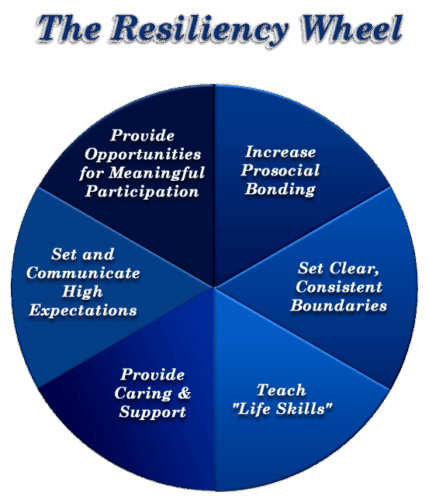Blog
How To Be Resilient
March 25, 2019
4 minutes, 2 seconds

What is resilience?
Resilience is the capacity to recover quickly from difficulties or toughness.
Everyone has resilience, it is more a question of how much do you have? And how well you put it to good practice and use in your life.
Resilience is about an individuals ability to bounce back or adapt when faced with tragedy, health concerns, relationship problem, work or school problems.
It doesn’t mean that the individual does not feel the intensity of the problem or event, rather it means that they have found good ways of dealing with it quicker than others.
Resilience can be increased or improved by having good supportive relationships in your life.
American Developmental Psychologist Ann Masten describes resilience as ordinary magic, meaning that in many cases a resilient outcome doesn’t come about as a result of something particularly earth shattering happening, it is more like everyday stuff.
What can affect resilience
- Intrapersonal factors: these being personality traits
- Interpersonal factors: psychological availability of parents. This could be things like death of grandparents, abandonment, divorce, separation, homelessness or illness of a sibling.
- Environmental factors: such as fires, flooding’s, robbery, wars, car accident, murders in the neighbourhood.
- Experiences during the sensitive stages of development: Piaget’s stages of development come to mind here. The four stages are sensorimotor (birth through to 24 months), preoperational (24 months- 7 years), concrete operational (7years to 12 years) and formal operational (adolescence through to adulthood).
- Trauma: sexual, emotional, physical abuse or any other type of serious trauma.
How do you increase resilience?
There are many ways to increase resilience and having supportive relationships in your life with family and friends are an important foundation according to research.
When considering increasing resilience we must look at covering 3 areas: I CAN, I AM and I HAVE
- I CAN
Here we are looking at social interpersonal skills, supporting resilience and coping skills. Being able to reach out when you have a problem and problem solving the things going on in your life, by using self-control.
- I AM
Looking at your personality characteristics that will support resiliency, these are like respect optimistic, helpfulness.
- I HAVE
Who or what do I have in my life to provide me with support?
To build on resilience, we must consider the resilience wheel:

We can adapt this tool and us with ourselves or clients in times of crisis.
- Caring and support: listening to our concerns or others, answering questions in a direct, factual way.
- High expectations: expressing certainty that you or the person involve can cope with the situation and can rely on their inner strength and resources.
- Opportunities for participations: helping those involved to come up with ways they can address the crisis.
- Prosocial bonding: provide individuals with positive activities to do that will give them a sense of purpose and mastery in the situation. Nurture yourself, focus on your needs boasting your overall personal needs.
- Clear, consistent boundaries: strike a balance between assessing concerns and getting back to a normal schedule.
- Life skills: encourage communication about thoughts and feelings. When you encounter a new challenge make a list of potential ways you could deal with it.
- Accepting that change is a part of life, and avoidance of spending wasted time dwelling over things that we do not have the power to upturn. Embrace change become more adaptable, this will help you feel more equipped in dealing with life crisis.
- Take decisive actions: use your problem-solving skills to take appropriate actions in relation to things that are causing problems in your life.
- Look for opportunities of self-discovery- looking for things that will help you grow and develop in life will have you discover more coping skills and highlight how you can deal with difficult events. Become optimistic, positive thinking will help you acknowledge the setbacks but focus on the future.
- Maintain a hopeful outlook: life will throw things at us, we will have the tools to deal with these. It is about looking at how things at present maybe hard but the is light at the end of the tunnel and we will have had learning from the experience.
- Self-esteem plays an important role in coping with stress and recovering from difficult events, continuous reminds of your personal strengths and accomplishments will improve your resilience. When you hear the negative comments in your mind, practice replacing them with a more balanced comment.
Surround yourself with the protective, support people who you can share your thoughts, feelings and can gain some constructive positive feedback.
“We all need resilience to live in a fulfilling life. With resilience, you will be more prepared to take on challenges, to develop your talents, skills and abilities so that you can live with more purpose and more joy” - Eric Greitens